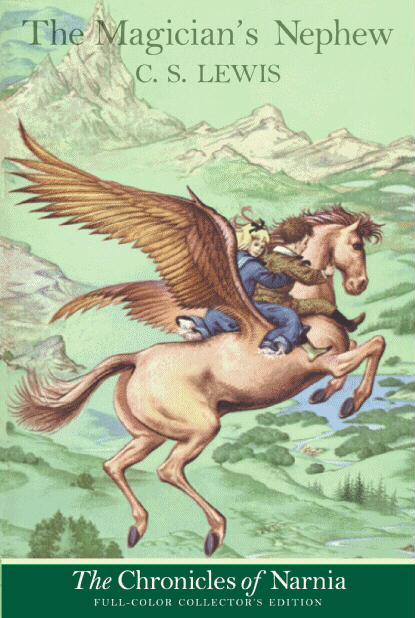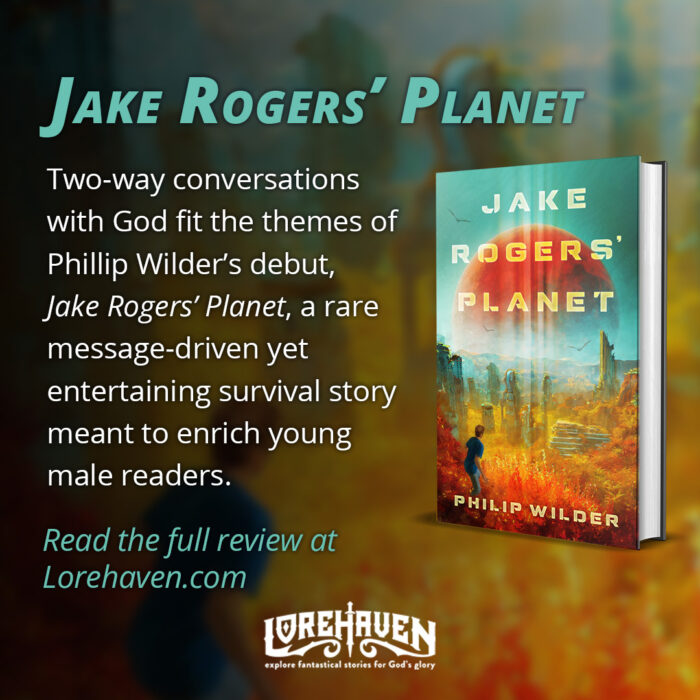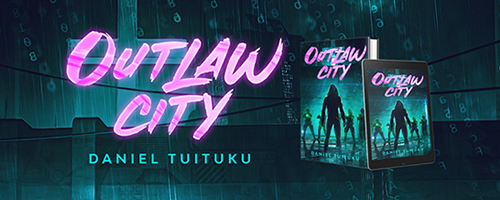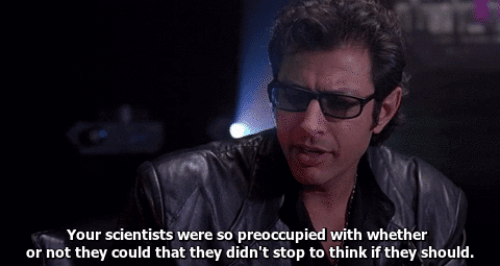60. Why Don’t Real Researchers Heed Sci-Fi Warnings Against Mad Science?
Podcast: Play in new window | Download (Duration: 52:17 — 49.2MB) | Embed
“This time, it will be different,” quips the mad scientist. “I’m not one of those idiots who don’t know what they’re messing with. I’m an enlightened individual who’s going to accomplish what’s never been done before!” Or so the thinking goes. We see these characters all the time in stories. But increasingly, we’re seeing this mad scientist attitude in the real world. Why is life imitating the very art that tried to warn us?
 Mad scientist motives at the dawn of Narnia
Mad scientist motives at the dawn of Narnia
- The mad scientist is perfectly captured by Uncle Andrew in C. S. Lewis’s The Magician’s Nephew.
“Rotten?” said Uncle Andrew with a puzzled look. “Oh, I see. You mean that little boys ought to keep their promises. Very true: most right and proper, I’m sure, and I’m very glad you have been taught to do it. But of course you must understand that rules of that sort, however excellent they may be for little boys—and servants—and women—and even people in general, can’t possibly be expected to apply to profound students and great thinkers and sages. No, Digory. Men like me, who possess hidden wisdom, are freed from common rules just as we are cut off from common pleasures. Ours, my boy, is a high and lonely destiny.”
As he said this he sighed and looked so grave and noble and mysterious that for a second Digory really thought he was saying something rather fine. But then he remembered the ugly look he had seen on his Uncle’s face the moment before Polly had vanished: and all at once he saw through Uncle Andrew’s grand words. “All it means,” he said to himself, “is that he thinks he can do anything he likes to get anything he wants.”
—The Magician’s Nephew, C. S. Lewis
- Later on Queen Jadis, the future White Witch of Narnia, says much the same:
“I was the queen. They were all my people. What else were they there for but to do my will? … You must learn, child, that what would be wrong for you or for any of the common people is not wrong in a great queen such as I. The weight of the world is on our shoulders. We must be freed from all rules. Ours is a high and lonely destiny.”
—Queen Jadis, from The Magician’s Nephew, C. S. Lewis
Concession stand
- We’re not anti-technology or anti-science, but pro-ethics.
- This isn’t about Christians vs. Science, but science vs. science.
- The objections to the stories we’ll talk about most often come from other scientists.
1. Gene editing
First up, humanity’s quest to hack the DNA code of humans, animals, and sometimes both at once.
- “Scientists Have Created Embryos That Are Part Human, Part Monkey,” Forbes.com, April 15, 2021
… Chimeric embryos were created by injecting human stem cells into monkey embryos which were then grown under laboratory conditions … a controversial practice that scientists say could help develop treatments for diseases and pave the way to growing much needed organs for human transplantation.
The moral status of these part-human animals is a particularly thorny issue, as they must have enough humanity to be useful for experiments or, one day, to grow human organs, but not enough humanity so as to warrant protection from experimentation.
- Designer babies thru CRISPR
- “Elon Musk partner says he could build the real ‘Jurassic Park,’ with genetically engineered dinosaurs,” TheHill.com, April 8, 2021
The co-founder of Elon Musk’s company Neuralink tweeted on Saturday that the startup has the technological advances and savvy to create its own “Jurassic Park.”
2. Sentient robots
Next, we’ll talk about the successor to the Industrial Revolution, the machine intelligence revolution.
- “U.S. Army’s New Drone Swarm May Be A Weapon Of Mass Destruction,” Forbes.com, June 1, 2020
Current drones like the MQ-9 Reaper are controlled remotely, with a pilot flying the aircraft and a payload operator aiming and launching missiles. A battery of other personnel, including military lawyers and image analysts, look over their shoulders and argue what is or is not a valid target. … Future drones may have more autonomy, flying and fighting with much less human supervision, in particular when many of them work together as a swarm.Zak Kallenborn, an expert in unmanned systems and WMD, describes one type of swarm that he calls an Armed, Fully-Autonomous Drone Swarm, or AFADS. Once unleashed an AFADS will locate, identify, and attack targets without human intervention. Kallenborn argues that an AFADS-type swarm is a genuine Weapon of Mass Destruction because of the amount of harm it can do and because of its inability to distinguish civilians from military targets. This is the type of swarm in the fictional 2017 viral video Slaughterbots released as a warning against autonomous weapons. - Prostitute androids
- Entertainment, such as AI-generated images and text
3. Transhumanism
Finally, let’s look at a different way that researchers are trying to improve the human condition: by changing us into something beyond the biological.
- “Elon Musk startup shows monkey with brain chip implants playing video game,” The Guardian, April 9, 2021
The billionaire entrepreneur Elon Musk’s brain-chip startup released footage on Friday appearing to show a monkey playing a simple video game after getting implants of the new technology.The three-minute video by Neuralink shows Pager, a male macaque with chips embedded on each side of its brain, playing Mind Pong. Although he was trained to move a joystick, it is now unplugged. He appears to control the paddle simply by thinking about moving his hand up or down.“First @Neuralink product will enable someone with paralysis to use a smartphone with their mind faster than someone using thumbs,” Musk tweeted on Thursday. - “Pentagon unveils sensor that detects Covid in the body,” The Independent, April 12, 2021
- “Androids that offer ‘digital immortality” begin mass production in Russia,” BigThink.com, Nov. 9, 2019
- “How to Escape the Confines of Time and Space According to the CIA,” Vice.com, Feb. 16, 2021
- “A Dyson Sphere Could Bring Humans Back From the Dead, Researchers Say,” Popular Mechanics, March 10, 2021
- “Scientists May Have Figured Out How to Raise the Dead – Really,” CBR.com, March 10, 2021
Turchin was inspired to investigate the afterlife after he experienced the tragic death of a fellow classmate at the age of 11 years old. Affected by that experience, the scientist stated, “I started to think in science-fiction terms about what could be done.”
And then in an absurd but hilarious twist, a refreshing perspective on science was recently delivered by the Steak-Umm Twitter account in a snarky reply to Neil deGrasse Tyson.
Fantastic fans
Jason V. writes:
Great episode, guys! I’m catching up, looking forward to parts 2 and 3 of the series. Excellent points about fiction within the context of community, especially the church. Book clubs can be tough to pitch and maintain, especially if people can’t keep up the reading pace. An alternative to a traditional “book club” was described in a recent Mere Orthodoxy article, where enthusiasts of an author or book gathered to read aloud together. Another, very different means of exploring fiction together in a small group is in the context of a tabletop role-playing game (I.e. Dungeons & Dragons, etc.), where the players are take the roles of protagonists in a genre, setting, and adventure that develops through play in a kind of immersive, collaborative, storytelling process.
Next on Fantastical Truth
Secular sci-fi often explores darker themes such as gene-editing and consciousness-uploading. Christian-made sci-fi, however, tends to lean on the softer side. How might this leave an opening for more complex futuristic tales that dare to engage with controversial themes? Novelist Kerry Nietz, no stranger to bold sci-fi themes, joins us to discuss how edgier science fiction can challenge Christian readers.





































That would be cool if the moral scolds actually engaged with the ideas and the conversations already existing rather than just recycled generic platitudes that feel more about their fear of change than anything else. I mean for glob’s sake, you’re citing a book that was made half a century ago. Are y’all even aware of how the ethics of science have developed since then? Do y’all just assume that Skinner’s experiments would be allowed today without a peep?
Also mammoths are 100% less carnivorous than dinosaurs and might help save the tundra and are better worth the time and money.
Eh, got to say, the only platitude I’m seeing here is in this comment. The “fear of change” part is exceptionally platitudinous, and isn’t supported by a second’s worth of this podcast episode. 😀